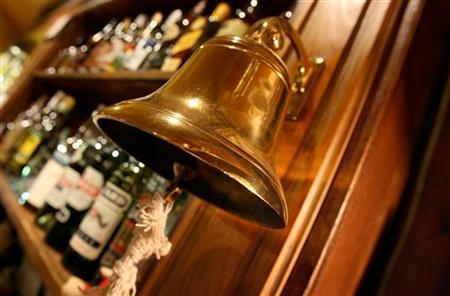Pubs could essentially be nationalised by 2020 if campaigners against Pub companies continue to lobby for more state regulation, a think tank has warned.
Chris Snowdon said the “real problem” for the pub industry was the lack of buyers and not, as many campaigners suggest, large companies who lease out properties and impose certain rules for landlords on which beers they can serve and what price they pay, the Morning Advertiser reports.
And he said those who were looking after the industry were CaMRA (Campaign for Real Ale) and the members of the Parliamentary Save the Pub Group.
Recently, the government announced it wanted to impose legislation to protect traditional pubs from being bough up and turned into flats or offices. But Mr Snowdon responded to the suggestion by saying that even listing them as a community asset would just lead to ‘derelict pubs’.
“Intervention upon intervention will lead to failure,” he said. “If we distort the market so much there will be no market left and the only people who can look after pubs will be politicians.”
“This is what I mean when I say that by 2020 we could be on our way to some kind of state-ownership of pubs; if they are regulated in such a way they are not able to be run by viable businesses.”
Drawing on examples of organisations such as English Heritage, who receive the majority of their funding from central government grants, he warned that pubs could be nothing more than exhibitions of life from a previous time.
“Similar to national heritage sites, the building is preserved but the spirit of the pub is not,” he said.
The outspoken libertarian expressed his belief that politicians weren’t really concerned about the existence of the traditional British pub, saying if they were “genuinely committed” to the continued existence of the pub trade “they could and should halve alcohol duty and amend the smoking ban” and permit landlords to have one smoking room.
There has been a steep decline in the financial well being of pubs since 2007 when the Labour government brought in the blanket ban, saying that pubs wouldn’t suffer because people who had until then avoided them would change their habits and frequent local establishments on a regular basis. With 70 percent of pub regulars smokers, the industry suffered a wounding blow compounded by high duties on alcohol and low supermarket prices.
“What are the chances of that happening?” he asked: “Very little. We will have to endure the nauseating sight of MPs crying crocodile tears at the demise of pubs.”
Mr Snowdon was the author of a report into the reasons behind the closures of so many British pubs which calculated that of the 21,000 pubs that have closed in the UK since 1980, half of them had taken place since 2006.
It concluded that taxation, regulation and the recent decline in disposable incomes are the leading causes of the decimation of the UK pub industry since 2006, responsible for around 6,000 pub closures. The smoking ban and the alcohol duty escalator were found to be ‘particularly culpable’.
And contrary to popular opinion, particularly in Westminster, it said the blame attached to the beer tie has been greatly overstated. “There is little evidence that pubs owned by PubCos have been closing permanently at a faster rate than those in the rest of the sector.” Instead, he said the statutory code proposed by the Department for Business, Innovation and Skills was aimed at the wrong target.
“A better approach would be to reduce alcohol duty, relax the smoking ban, reduce VAT to 15 percent and lower it further for food sales, abolish cumulative impact zones and scrap the late night levy,” Mr Snowdon concluded.

COMMENTS
Please let us know if you're having issues with commenting.